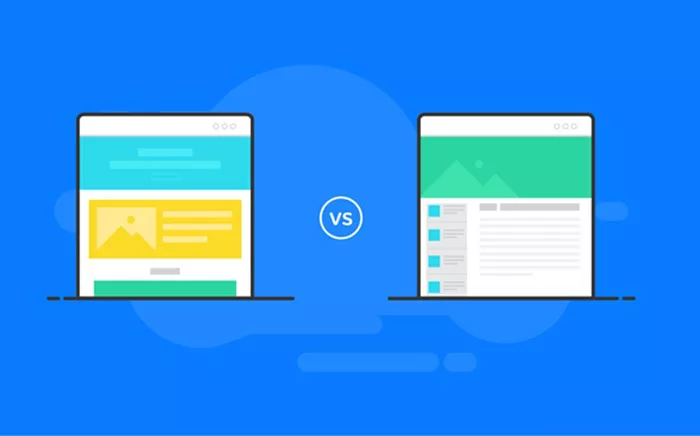In the digital world, content creation is a crucial aspect of communication, marketing, and information sharing. Whether you are a writer, a business owner, or an enthusiast looking to share your insights, understanding the difference between a post and a blog is essential. Many people use these terms interchangeably, but they serve distinct purposes and functions. This article delves into the key differences between a post and a blog, their structures, purposes, and the best practices for using them effectively.
Understanding the Concept of a Blog
A blog is a collection of written content published on a website in a chronological format. It serves as a platform for individuals, businesses, or organizations to share insights, opinions, updates, and educational content. Blogs are dynamic and often updated regularly to engage audiences with fresh content.
Key Characteristics of a Blog
A Collection of Posts – A blog is an entire section or category on a website that contains multiple posts. It serves as a repository for ongoing content.
Chronological Order – Most blogs display content in reverse chronological order, meaning the latest entries appear first.
Author’s Perspective – Blogs often reflect the author’s opinions, expertise, and thoughts on a specific subject.
Interactivity – Many blogs allow readers to comment, share, and interact with the content.
Regular Updates – Blogs are updated periodically with new posts to keep audiences engaged and informed.
Diverse Content Types – A blog may include written articles, videos, images, infographics, and even podcasts.
SEO Benefits – Blogs help improve a website’s visibility on search engines by incorporating keywords, backlinks, and other SEO strategies.
Understanding the Concept of a Post
A post is an individual piece of content published within a blog. It is a single entry that contributes to the overall blog by providing specific information on a particular topic. Posts can be standalone or part of a series covering related themes.
Key Characteristics of a Post
Individual Content Entry – A post is a single piece of content that exists within a blog.
Specific Topic – Each post focuses on a particular subject, making it concise and informative.
Publishing Date – Posts are dated, which helps in organizing them chronologically.
Engagement Features – Posts may include comment sections, social media sharing options, and interactive elements.
Tags and Categories – Posts are usually assigned tags and categories to help readers find related content easily.
Can Be Edited or Updated – While posts are typically static once published, they can be updated or revised as needed.
Differences Between a Blog and a Post
Although blogs and posts are related, they have distinct differences that set them apart. Below are the key differences:
1. Definition and Structure
A blog is a collection of posts, whereas a post is an individual entry within a blog.
A blog functions as an overarching platform that houses multiple posts, while a post is a single piece of content that contributes to the blog’s content repository.
2. Purpose and Functionality
Blogs serve as a long-term platform for sharing knowledge, updates, and industry insights.
Posts focus on a specific topic and provide detailed information, analysis, or personal perspectives.
3. Content Longevity
A blog exists indefinitely and grows over time with new posts.
Posts may be evergreen (relevant for a long time) or time-sensitive (addressing current events or trends).
4. Reader Engagement
Blogs as a whole encourage ongoing engagement by offering a variety of posts.
Individual posts engage readers through their content, comments, and social media interactions.
5. Search Engine Optimization (SEO)
Blogs enhance SEO by accumulating multiple posts optimized for various keywords.
Posts contribute to SEO by focusing on specific keywords and attracting traffic to the blog.
6. Frequency of Updates
Blogs are continuously updated with new posts, ensuring fresh content is available.
Posts are created as needed and remain unchanged unless updated for accuracy.
Best Practices for Managing a Blog and Posts
To maximize the effectiveness of a blog and its posts, consider these best practices:
1. Maintain Consistency
Regularly updating a blog with new posts keeps readers engaged and improves search engine ranking. Establish a content schedule to ensure a steady flow of posts.
2. Write High-Quality Posts
Each post should be well-researched, well-written, and valuable to readers. Quality content encourages reader trust and enhances credibility.
3. Optimize for SEO
Use relevant keywords, meta descriptions, and headings to improve visibility. Optimize images and ensure mobile responsiveness for better user experience.
4. Engage with Readers
Encourage comments, feedback, and discussions on posts. Respond to reader inquiries and foster a community around the blog.
5. Organize Content Effectively
Categorize posts logically and use tags to make navigation easy. A well-structured blog improves readability and user experience.
6. Promote on Social Media
Share blog posts on social media platforms to increase reach and drive traffic to the blog.
7. Keep Posts Updated
Revisit older posts to update outdated information, add new insights, or improve SEO.
Conclusion
While blogs and posts are interconnected, understanding their differences helps in managing content effectively. A blog is a collection of posts that serves as an evolving platform for sharing insights, while a post is a specific entry that delivers targeted information on a given topic. Knowing how to leverage both effectively ensures better engagement, improved search engine visibility, and a stronger digital presence. Whether you are a blogger, marketer, or business owner, distinguishing between a blog and a post will help you create compelling content that resonates with your audience.
Related Topics

